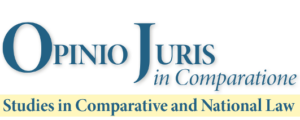From the Black swan, to the Snowball. Risks of Covid-19 pandemic for consumer credit scores in the lack of a harmonized regulatory intervention
Authors: Antonio Davola
ABSTRACT
In light of the harmful and wide-ranging effect of the coronavirus pandemic, many governments in the European territory and on the global framework rushed to introduce forms of financial support for those groups that are susceptible to be economically affected by the current situation in order to limit the economic fallout of the pandemic. Still, and in spite of the significant level of regulatory intervention, no major normative change addressed the area of consumer spending and consumer credit. Considering the expected length of the phenomenon, and its impact on the economy and employment, the management of consumers’ economic exposure and of unpaid debt is though meant to emerge as a major consequence during and after the expiration of the pandemic: in particular, significant risks are related to the consequences that the deterioration of consumers’ exposure caused by the COVID-19 and the pandemic-related factors is likely to have on their credit scores (and, subsequently, in terms of outcome of future creditworthiness assessments). Scores have a major impact on consumer credit landscape, and badly determined/distorted scores invest both consumers and credit operators: consumers are precluded from accessing credit in a moment of financial distress; banks and other institutions are not able to properly discriminate between the quality of potential borrowers, therefore facing risks of overexposure to losses and unprofitable operativity. In order to prevent a further worsening of the (already distressed) global economic health, it is therefore pivotal to promptly introduce harmonized corrective measures to mitigate the risk of unsought deviation in the credit scoring sector. The research investigates the impact of the events related to the COVID-19 infection on the scoring software’s functioning, considering how the pandemic is likely to impact on both macro and microeconomic factors related to consumer behavior and indebtedness. The analysis is then developed in order to provide a set of recommendations for interventions with the aim to preserve algorithms’ stability, accuracy and predictive power over the pandemic and during its aftermath.
Keywords:

